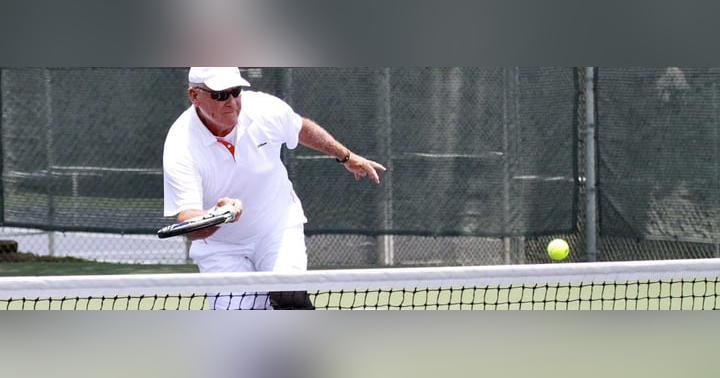Improving doubles communication in tennis

When doubles teams are put together, there is often a lot of chatter around the physical strengths and weaknesses of each player. Captains discuss at length, each players backhand, and forehand, their presence at the net and the pros and cons of their serve. Yet, more important than physical or technical attributes effective doubles teams are derived in the ability of the pair of players to work together and communicate effectively.
Three forms of communication
- Interpersonal. This is communication between players that enhances trust. It must be delivered at the right time and be clear and concise.
- Non-verbal. This type of communication can include body language, gestures, eye movement, and facial expressions. Especially for players that don't know each other well, this communication can be misinterpreted.
- Intrapersonal. This is the conversation you have with yourself otherwise known as 'self-talk'. We'll discuss this at length on another blog
Even though we communicate all the time, it is useful to understand the steps of communication at a fundamental level. From a psychologists perspective, there are five stages of communication:
- Decision. A player decides what he or she wants to say
- Encoding. That player 'encodes' the message choosing how to deliver it (verbal, gesture, etc)
- Transmit. The player transmits the message
- Decoding. The receiving player interprets or 'decodes' the message. This is where we need to have caution around misinterpretation (especially with non-verbal cues).
- Response. The receiving player acknowledges the message and/or responds.
Tennis is a fast-moving game where matches are decided by the smallest of margins. Communication or miscommunication can be the deciding factor. Let's look at some useful tips for communication in doubles.
- Make sure all your communications in doubles are clear and concise.
- Between points, as many times as you can, be positive with your partner (verbal or nonverbal).
- When the point ends, if you can, meet with your partner before walking to your respective positions.
- Enhance team unity by supporting one another with high fives or a pat on the back.
- If things get (more) stressful then smile at your partner. This simple and powerful gesture reminds them that tennis is fun and can help them relax.
- When the game gets difficult, remain constructive and supportive with your partner.
- If your partner is struggling, remain energetic by bouncing on your toes and talking positive (“We can do this”) with maximum effort.
- The use of non-verbal communication (eye contact, hand signals, etc) can be really effective in demonstrating confidence in your partner.
- Always treat your partner with respect and dignity. You can deal with any personal problems after the match.
- Always use the word “we” when talking to your partner. Doubles is a team sport.
Post-match analysis
If you are going to playing with your partner multiple times, then analyzing the team communication post-match in an open and non-judgemental way can be incredibly useful. If you can better understand the quality of your respective communication tendencies, then you can improve the verbal and non-verbal acts and win more matches by being 'clutch' in those critical moments like tiebreaks. Here are four key questions to ask:
- In what situations where you positive and/or supportive in communicating?
- In what situations where you negative and/or unsupportive in communicating?
- What would you like to be able to better communicate with my partner?
- What would you like my partner to be able to better communicate with me?











